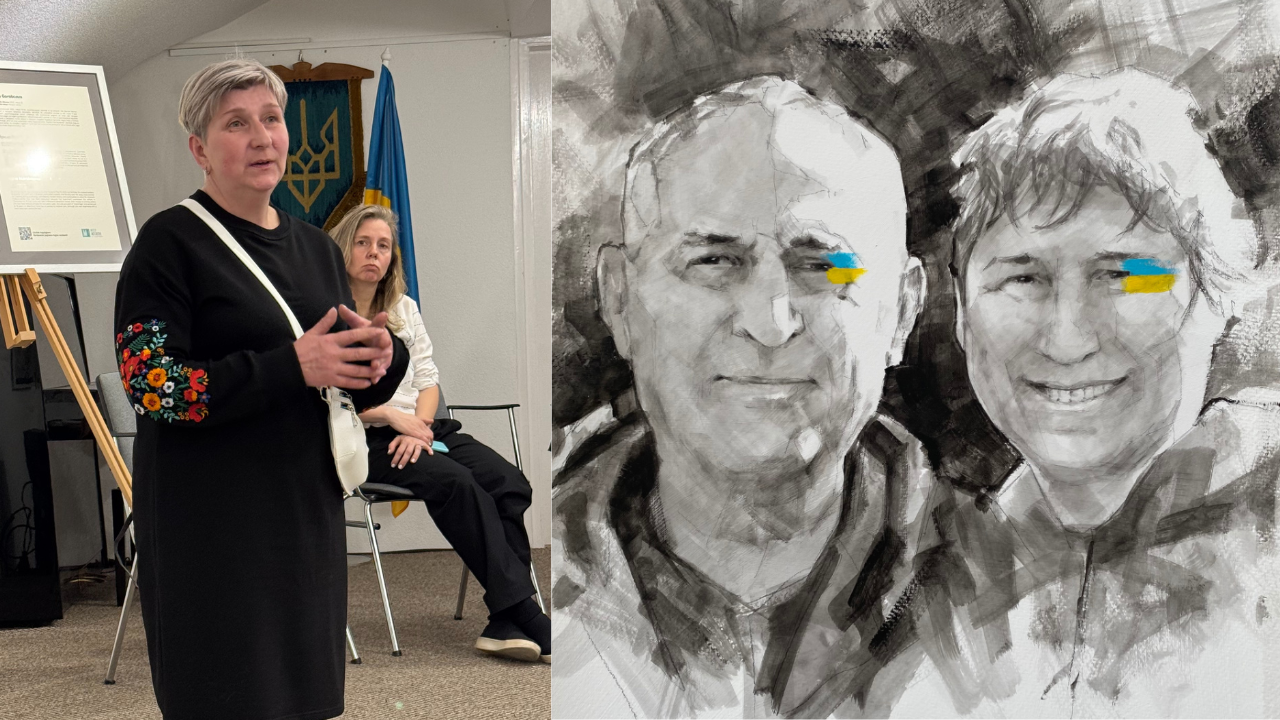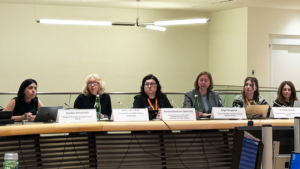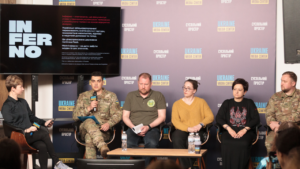Exhibition on Ukrainian Civilians Illegally Detained by Russia Opens in Budapest

An exhibition titled Civilians in Captivity: Stories of Unjust Detentions has opened in the capital of Hungary. Organized by the Media Initiative for Human Rights (MIHR) in partnership with the State Self-Government of Ukrainians in Hungary (SSUUH), the exhibition sheds light on one of the least known humanitarian crises of Russia’s war against Ukraine — enforced disappearances and the unlawful detention of Ukrainian civilians from occupied territories.
The exhibition features 35 monochrome portraits of Ukrainians abducted and illegally held in Russia, created by Ukrainian artist Anna Movenko. The opening event included a special discussion with diplomats, human rights defenders, representatives of the Ukrainian diaspora, and the relatives of civilian detainees.

“The portraits displayed here represent only a fraction of the civilians abducted by Russia. In many cases, we have no information about their fate due to obstruction by the aggressor state. Over 20,000 children have been unlawfully deported to Russia, and more than 1.5 million remain in occupied territories, at risk of being placed in so-called re-education camps. We call on the international community to help bring these people home,” said Balog Ishtvan, Advisor to the Ambassador of Ukraine to Hungary.

According to MIHR’s research, all civilians in occupied territories who refuse to recognize the occupation regime — regardless of whether they resist actively — are at risk of abduction. Many are kidnapped directly from their homes or the streets.
“As the head of the global Ukrainian women’s community, I want to draw attention to what is happening to women in Russian prisons. They face physical, psychological, and sexual abuse. We must not just talk about these crimes — we must shout about them. These civilians must return home,” said Yaroslava Khortiani, President of the World Federation of Ukrainian Women’s Organizations.

As of March 2025, MIHR has verified 1,908 Ukrainian civilians unlawfully detained in Russia and occupied Ukrainian territories. Russia largely refuses to confirm their detention, denies them any communication with their families, subjects them to torture, and often coerces them into confessing to crimes they did not commit. Unlike prisoners of war, civilian detainees have no established mechanisms for release under international humanitarian law.
“We are here in Budapest to raise awareness about a problem for which no solution currently exists,” said Tetiana Katrychanko, Executive Director of MIHR, during the exhibition’s opening. “Ukraine cannot bring its citizens home alone. We want to find more allies who can work on alternative solutions. The Hungarian government, for instance, could take on a humanitarian mission — selecting a small group of Ukrainian civilians and negotiating with Russia for their return.”

Visitors to the exhibition also had the opportunity to experience the conditions of civilian detainees in Russia. Using VR technology, MIHR recreated a cell from Moscow’s Lefortovo pretrial detention center, based on drawings made by Ukrainian detainee Serhii Ofitserov while he was held there. Ofitserov was abducted from Kherson two and a half years ago. Today, Russia is prosecuting him on fabricated terrorism charges.

Olena Rudenko, whose sister, former journalist Iryna Levchenko, was abducted along with her husband by Russian forces from occupied Melitopol in 2023, emphasized the importance of international awareness:
“It is crucial for the world to know about this issue. Every person who spreads information about civilian detainees contributes to the fight for their freedom. Any country can try and help get them out of Russian prisons. They must be saved.”

According to artist Anna Movenko, her work aims to convey the emotions of those trapped in isolation, stripped of their voice:
“These portraits are black and white, painted with expressive brushstrokes to highlight the despair of the detainees. The blue and yellow strokes symbolize hope. Art is a universal language, understood by everyone. This exhibition is another step toward the liberation of these people.”

The exhibition will be open to visitors for two weeks at the State Self-Government of Ukrainians in Hungary, located at Hajós u. 1, Budapest, from 9:00 AM to 1:00 PM.






